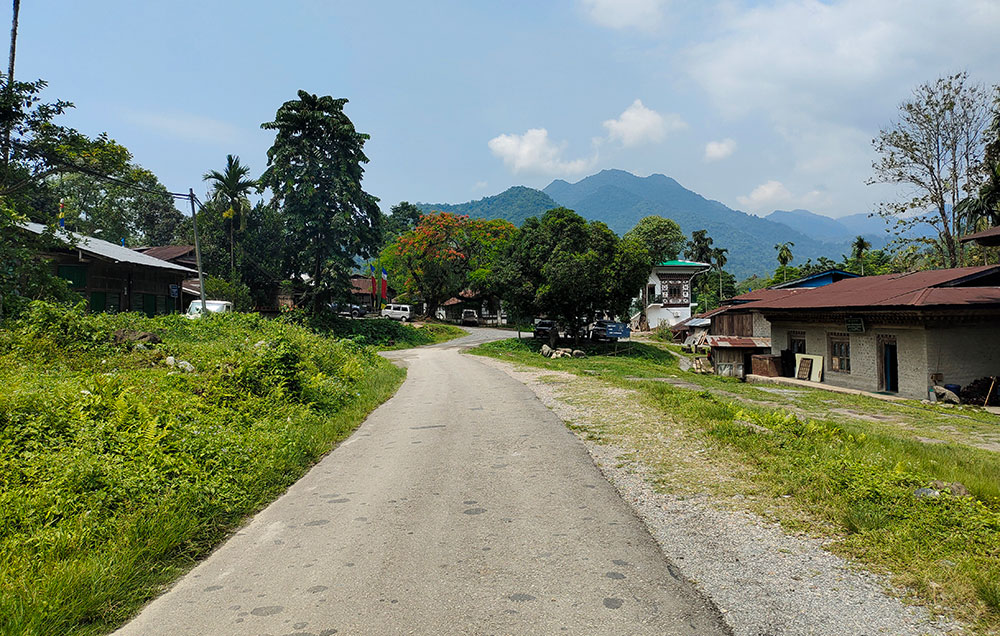Lhakpa Quendren
PANBANG — Restaurant owners in Panbang have raised allegations against the Bhutan Chamber of Commerce and Industry (BCCI) representatives, accusing them of engaging in fraudulent practices during the collection of fees.
Specifically, they claim that BCCI’s representative, Sangay Penjor, collected additional fees totalling Nu 2,400 alongside the issuance or renewal fees for restaurant licences. Restaurant operators have voiced their discontent with these charges, stating that they were charged amounts ranging from Nu 5,400 to Nu 9,200 depending on the location of their establishments.
While the restaurant owners are uncertain about the reasons behind these additional fees, they express dissatisfaction with the lack of money receipts for these payments. Their concerns have led them to question whether these fees represent new rules and regulations imposed by the government.
One restaurant owner, who operate both a restaurant and bar, alleged that she was charged Nu 9,200 to cancel her bar licence. She further claims that the BCCI representative advised her to renew her restaurant licence, despite it not being due for renewal.
“I paid Nu 7,000 for the licence renewal. An additional Nu 800 was charged for registration on the BETA app, and Nu 1,000 was required to obtain a new taxpayer number (TPN). Furthermore, a fee of Nu 400 was collected for the service,” she said.
Another restaurant owner reported paying Nu 8,200 for the conversion of bar into a restaurant. “I paid Nu 1,000 for the TPN, but the system has not updated the new number. It has been almost two months now,” he said.
In Bjoka Gewog, a restaurant owner said that she paid Nu 2,400 in addition to the Nu 3,000 licence renewal fee.
However, some restaurant owners who sought services from the Gewog Community Center (CC) claim that, except from the renewal fee, they were not required to make any additional payments. One restaurant owner said, “I renewed my licence at the CC and did not pay any additional fees. According to my understanding, we are supposed to pay the renewal fees to the trade office, not to the BCCI.”
Jampel Choeda, thromde representative of Panbang, said that he received approximately 30 complaints regarding the additional fees collected by the BCCI representative in Panbang.
“Restaurant owners from four gewogs under the Panbang Throm have raised concerns about this matter. I have made inquiries with both the BCCI representative and other officials, but they have been unable to provide any answers,” he said.
In response to the allegations, Sangay Penjor defended the collection of fees stating that it is mandatory for businesses to register for BCCI membership after obtaining their licences. Additionally, he claimed that some amounts were collected as penalties for late licence renewal.
The membership fee varies between Nu 500 and Nu 1,500, depending on the location, Penjor said. Furthermore, he justified the charge of Nu 200 for his personal services, as he used his personal equipment, such as a computer and printing toner. Penjor also said that he compiled all the necessary documents and visited the Gelephu BCCI office to resolve issues that could not be addressed online.
Tandy Wangchuk, president of the BCCI, assured that individuals who become BCCI members are provided with money receipts for the membership fees. He said, “There have been no issues regarding membership fee collection in the last 40 years.”
However, he acknowledged that problems had arisen in Kamichu, Wangdue, as the membership fees were collected based on the directive of the Annual General Meeting.
Tandy Wangchuk said, “Since the bar has merged with the restaurant, we collected Nu 3,000 for membership. However, we later realised that this amount was too high.” He personally visited Kamichu to address and resolve the issues, even offering refunds to those affected.
Tandy Wangchuk emphasised the accountability of officials who collect money without providing proper receipts, assuring that appropriate action would be taken. He also underscored the voluntary nature of BCCI membership.
Some restaurant owners from Kamichu in Wangdue had filed complaints with the police against the BCCI representative and similar concerns were also raised in Punakha.
Regarding the ongoing situation, Tandy Wangchuk said that the BCCI would provide necessary training to business owners based on their requirements. He said that the restaurant owners in question were interested in culinary training, and the BCCI was prepared to offer it at an estimated cost of Nu 1.5 million to Nu 2 million. He further emphasised that being a BCCI member carried numerous advantages, which the public may not be fully aware of. “We equally focus on supporting small and big enterprises in our work.”
Trade officials commented that while the BCCI initially proposed mandatory membership for business entities, the trade department rejected the new regulation, and no such initiative for collecting additional fees exists within the department.
Meanwhile, the affected business owners argue that if the BCCI intends to collect membership fees from businesses, they should have been informed beforehand. Transparency in the payment process is a crucial concern for restaurateurs.
“Some restaurant owners, including myself, had to borrow money from others to pay the fees. We are unhappy with the collection of membership fees without prior notification of such an initiative,” said one restaurant owner.
As per the rules and regulations governing the operation of restaurants, retail stores, and bars, the licence and renewal fees range between Nu 3,000 and Nu 15,000, depending on the location.


